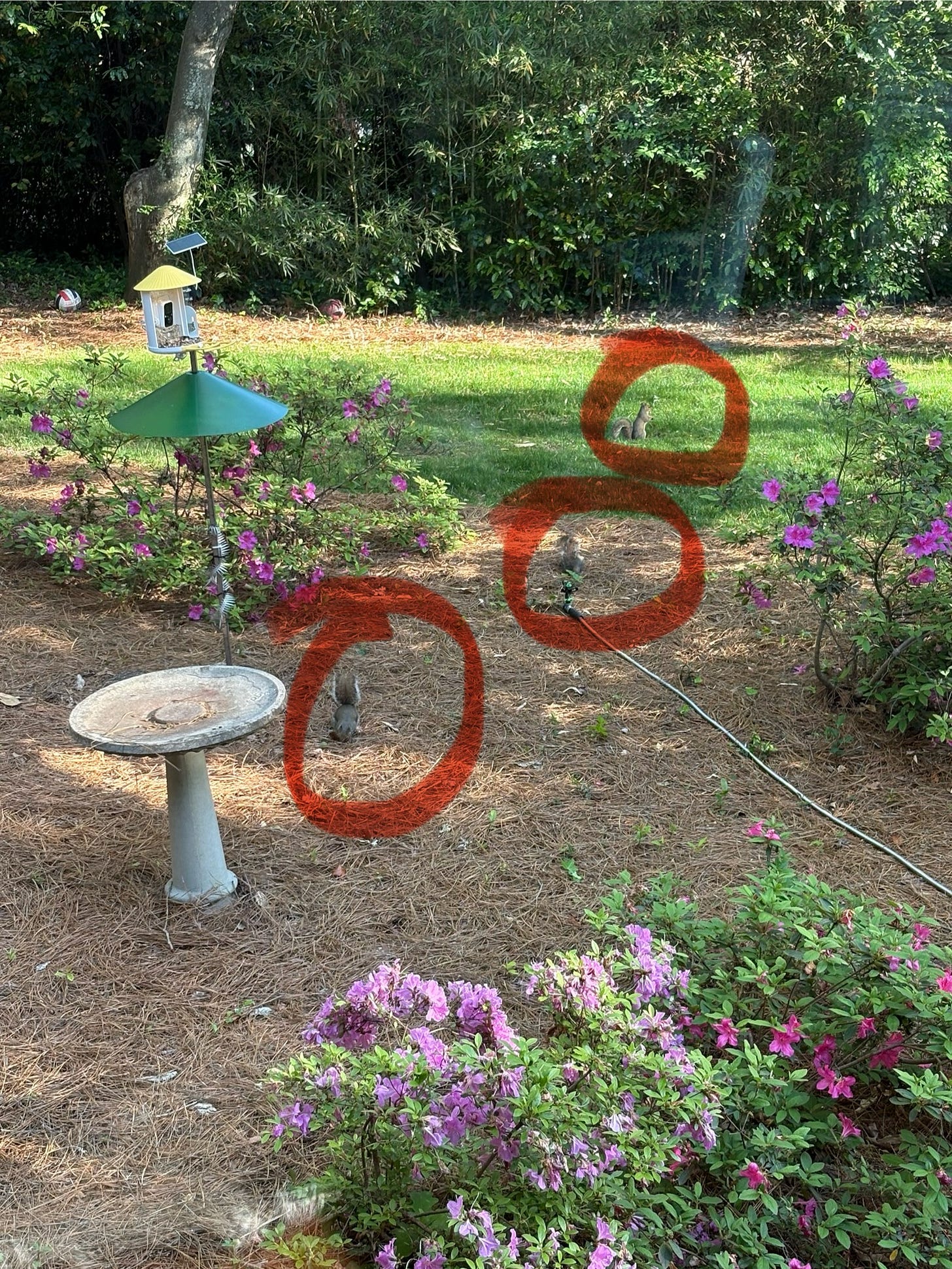Should You Keep Pushing . . . or Call It a Squirrel Feeder?
Let go, or double down in negotiation? A simple, surprising test, drawn from a Stoic and a persistent rodent.
"Anybody can become angry — that is easy; but to be angry with the right person and to the right degree and at the right time and for the right purpose, and in the right way — that is not within everybody's power and is not easy."
— Aristotle
Well, %$#@!
They’ve done it again. I wouldn’t have believed it if I hadn’t seen it with my own eyes.
Yes, the squirrels have returned. Relentless, calculating, and acrobatic, launching their latest raid on our new bird feeder with a stealthy fury.
As with all great sieges, this one comes with a negotiation lesson.
Can You Control It?
Epictetus once said:
“In life, our first job is this: to divide and distinguish things into two categories — externals I cannot control, and the choices I make with regard to them, which I do control. Where will I find good and bad? In me, in my choices.”
In other words: Focus on what you can control. Let go of what you can’t.
That’s not just Stoic wisdom. It’s also a vital negotiation skill.
Because the ability to separate the uncontrollables from the controllables is what lets you stay grounded, make better decisions, and avoid wasting energy where it won’t make a difference.
Here are two critical questions to ask in any negotiation, especially the tough ones:
Is this something (or someone) I can control?
If not, how can I control my choices in response?
Choosing Your Battles
So back to the squirrels.
Once they caught wind of our high-tech bird feeder — “smart camera” with species identifier, solar panel, alarm, speaker, microphone, light, and more! — they moved in like they owned the place.
What’s cool about this feeder, among other things, is that it captures on video the birds that visit. You can watch them eating the seed curated for them, and meanwhile the device indicates the type of bird. You can listen to the visitors chirping and munching into a mic and, if you’re so inclined, can even whistle or talk back to them. (I know. Weird, but also awesome, right?)
The feeder is linked to an app on our phones, of course, so we’re notified whenever we have a new guest. Problem is, all of our notifications lately show large, furry gnawers chomping away. And these critters can EAT.

We tried everything:
Positioned the feeder away from trees. They scaled the pole.
Switched to “squirrel-repellent” spicy seed. They chowed like it was Taco Tuesday.
Affixed sharp, spiky metal deterrents. They used them for traction.
Installed a wobbling, anti-squirrel disc. They clung to it like Olympic gymnasts.
Activated lights, alarms, even shouted through the app. They ignored us like teenagers.
Every time we countered, they adjusted. And as we implemented the latest defense strategy, I paused.
I thought of Epictetus. And Aristotle. And that old saying: You can’t cover the sun with your finger.
At what point do you stop resisting reality and accept it for what it is?
At what point do you stop calling it a bird feeder and begrudgingly admit that it’s become a squirrel feeder? Squirrels need to eat, too, don’t they? Maybe a little shift in perception would make this all okay.
Or would it?
Resilience or Folly?
To be clear: Grit has its place. The squirrels have it in spades. And their tenacity is, in a strange way, admirable.
In negotiation, that kind of resilience can serve us well. Sometimes you have to press on, try again, iterate, improve.
But not always.
Sometimes, the wisest move is to step back and ask:
Am I fighting a battle I can’t win? And if so, what’s my best next move?
Because in negotiation, as in life, failing to let go of the uncontrollable can cost you — time, energy, money, and peace of mind. Besides being likely to overestimate our ability to predict the future, we can lose objectivity from the inside of a dispute or negotiation.
Get too dug in, and cognitive biases like the sunk cost fallacy can fool us into investing too much and making illogical decisions. As author Annie Duke (“Quit”) might say, strategic quitting is a skill that can, paradoxically, lead to more success.
Recently, we moved the feeder. We made a few adjustments. We’re cautiously optimistic.
But deep down, we know the squirrels are watching. Waiting. Probably laughing.
And we’re okay with that. Time will tell how much more of this mockery we can take.
Sometimes, the best decision is to change your strategy. Other times, it’s to change your expectations.
And occasionally it’s wisest to smile, shrug, and rename the feeder.
Negotiation Takeaway
When faced with persistent challenges, whether squirrels or stubborn negotiators, ask:
Is this something I can control?
Ultimately, focus on what you can control: your response, your strategy, and your mindset.
And maybe consider just calling it a squirrel feeder and moving on.





Don't succumb to the squirrels! I do believe you can outfox them. . . with a fox!
This is a fantastic example of how Stoic principles can really sharpen our negotiation tactics. Love to find a fellow stoicism-adherent negotiator :) I’ve touched on this in my own work—specifically how focusing on what we can control (our response, our strategy) and letting go of what we can’t is key to staying grounded. The squirrels are a perfect metaphor for that. They’re persistent, but no matter how many strategies we try, some things just can’t be controlled.
The trick, as you pointed out, is knowing when to pivot—whether it's shifting expectations or adjusting your approach. It’s not always about winning every battle, but choosing the right battles to fight. A lesson in both Stoicism and negotiation.